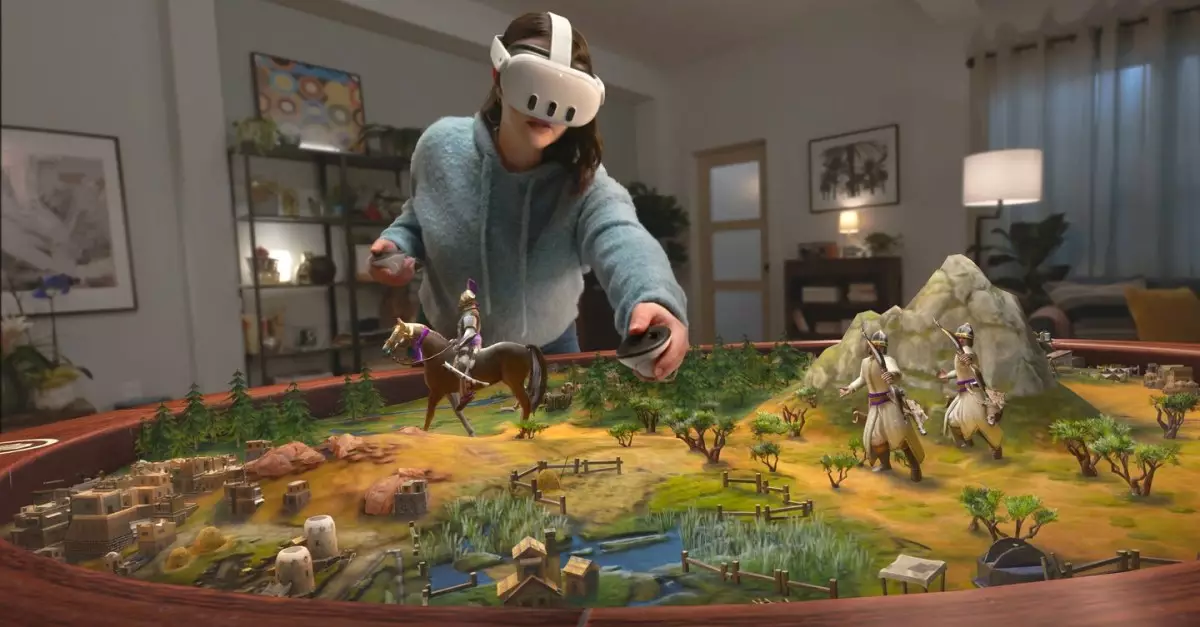The beloved Civilization franchise is embracing a new frontier with the introduction of Sid Meier’s Civilization VII – VR, a reimagining of the classic strategy game optimized for virtual reality. Developed by 2K and Firaxis Games, this iteration promises to deliver an immersive experience that honors the franchise’s legacy while pushing the boundaries of gameplay mechanics. Set to make a splash on Meta Quest headsets this spring, the game holds the potential not only to engage longtime fans but also to intrigue new players looking for captivating strategic experiences in a virtual environment.
What sets Civilization VII – VR apart from its predecessors is its “board game-like construction,” which invites players to interact with the game in a tactile manner. This unique approach utilizes the Quest’s passthrough cameras, effectively merging the virtual world with the player’s physical surroundings. This feature means that players can engage with their civilizations in a way that feels more personal and immediate. Additionally, users are given the flexibility to switch between a physically projected game board and an immersive virtual environment—often likened to a museum—where one can gaze upon a bespoke vista tailored to their chosen leader. This duality promotes a deeper connection to gameplay, offering the opportunity to customize one’s interaction based on preference.
Multiplayer functionality is a focal point for Civilization VII – VR, as the game allows opponents to appear around a digital table, brought to life as avatars representing their respective leaders. This incorporation of avatars creates a communal atmosphere reminiscent of traditional board games, effectively bridging the gap between digital and physical play. Enhanced social interactions in this way could redefine how strategy games are perceived, bringing back the more personal touch of face-to-face gameplay. While details on the pricing structure and specific release date remain under wraps, excitement builds as players anticipate these innovative additions.
Recognizing the challenge that lengthy VR sessions can pose, the developers have chosen to expedite the gameplay pace by default. This decision allows for a more accessible and inclusive experience, considering the varying comfort levels of users new to VR. However, players will still have the option to adjust the game speed according to their preferences, maintaining a balanced approach to engagement. This flexibility is essential in ensuring that players can enjoy the depth and complexity of civilization-building without feeling fatigued.
With Sid Meier’s Civilization VII – VR, the franchise is not merely adapting to technological advancements but is instead pioneering an innovative path for future strategic gaming. By blending the tactile essence of board games with the boundless possibilities of virtual spaces, Firaxis Games and 2K are poised to redefine how players experience strategic gameplay. As anticipation builds for its spring release, fans can look forward to witnessing how closely this adaptation respects the cherished elements of the franchise while integrating new-age virtual reality technology. For both seasoned players and newcomers alike, Civilization VII – VR is a promising development that could forever reshape the landscape of strategic gaming.


Leave a Reply